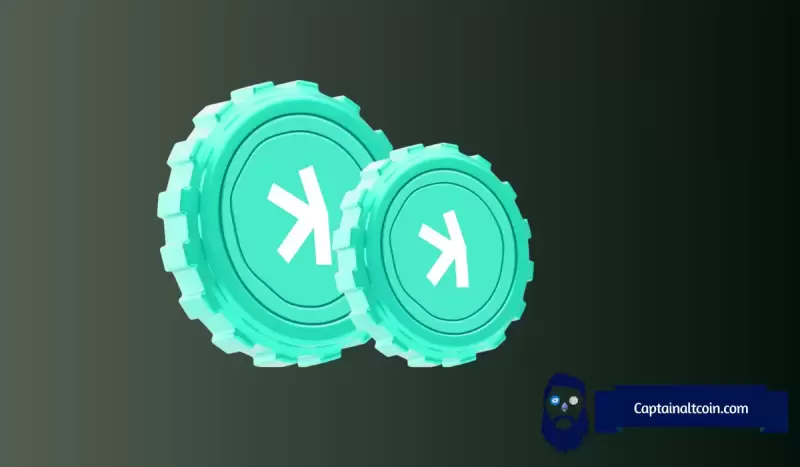 |
|
 |
|
 |
|
 |
|
 |
|
 |
|
 |
|
 |
|
 |
|
 |
|
 |
|
 |
|
 |
|
 |
|
 |
|
Cryptocurrency News Articles
Ethereum’s Pectra Upgrade: A New Era of Staking, Security, and Scalability
Feb 18, 2025 at 06:00 am
Ethereum’s upcoming network upgrade, Pectra, is generating massive excitement within the crypto community. Slated for deployment on the Ethereum mainnet

Ethereum's highly anticipated network upgrade, Pectra, is generating immense excitement within the crypto community. Slated for deployment on the Ethereum mainnet in early April, Pectra promises to deliver substantial improvements in staking mechanics, security, and scalability.
With the inclusion of eight Ethereum Improvement Proposals (EIPs), it's expected to be the largest Ethereum upgrade to date. Let's dive into the key features of Pectra that have everyone talking.
A New Era for Ethereum Staking
Ethereum staking has seen explosive growth in recent years, accounting for a significant portion of ETH's circulating supply. The Pectra upgrade introduces major changes to Ethereum's staking model, aimed at improving both flexibility and scalability.
Currently, Ethereum requires validators to stake 32 ETH per node. While this threshold has contributed to network decentralization, it has also created inefficiencies, particularly for large-scale operators. Pectra revises these staking limits, allowing validators to consolidate their ETH stakes across fewer nodes — up to 2048 ETH per node. This change benefits both smaller and larger participants in the staking ecosystem, reducing complexity for new validators while enabling large-scale operators to manage their resources more efficiently.
Highlighting the potential for increased profitability under Pectra, staking platform P2P.org has announced the introduction of auto-compounding features. According to their analysis, validators could earn an additional $1,000 annually through auto-compounding.
However, it's important to note that auto-compounding only works on validators holding less than the 2048 ETH limit, prompting P2P.org to implement a cap on balances to avoid exceeding the threshold. These changes, while beneficial, are complex, and staking services that specialize in Ethereum staking will likely become more essential for validators looking to navigate the intricacies of the upgrade.
Strengthening Network Security
In addition to the changes to staking, Pectra places a heavy emphasis on improving Ethereum's security. A key feature is the optimization of slashing penalties, which penalize malicious or underperforming validators. Pectra introduces dynamic penalties, with repeat offenders facing harsher fines, encouraging validators to maintain consistent performance.
The upgrade also incorporates zk-proofs, providing privacy-enhanced monitoring that can detect malicious activities without compromising validator confidentiality. This ensures that the network remains secure while reducing the risk of accidental slashing for honest validators.
Scalability: Ethereum's Path Forward
Scalability is another crucial area Pectra seeks to address. The upgrade introduces PeerDAS (Peer Data Availability Sampling), a mechanism that allows nodes to verify transaction data without needing to store the full dataset. This reduces memory overhead and accelerates block validation, improving Ethereum's overall throughput.
Perhaps the most exciting scalability feature is the introduction of Verkle Trees — a new data structure that streamlines how Ethereum's node data is stored and validated. By reducing storage requirements and improving computational efficiency, Verkle Trees enhance Ethereum's capacity to scale, benefiting not just the base layer, but also off-chain solutions such as rollups, enabling faster and cheaper transactions.
Account Abstraction: Revolutionizing User Experience
Another standout feature of Pectra is account abstraction, which promises to improve the user experience. With account abstraction, users can pay gas fees in tokens other than ETH, making Ethereum more accessible and versatile. This flexibility could further fuel the adoption of Ethereum-based applications, particularly those in decentralized finance (DeFi) and other sectors.
As Pectra nears its April deployment, the Ethereum community is eagerly anticipating the impact of these groundbreaking updates.
Disclaimer:info@kdj.com
The information provided is not trading advice. kdj.com does not assume any responsibility for any investments made based on the information provided in this article. Cryptocurrencies are highly volatile and it is highly recommended that you invest with caution after thorough research!
If you believe that the content used on this website infringes your copyright, please contact us immediately (info@kdj.com) and we will delete it promptly.
-

- Ethereum (ETH) Faces a Dramatic Drop in Blob Fees, Revenues Plunge to Their Lowest Levels Since 2025
- Apr 02, 2025 at 04:55 pm
- For the week ending March 30, 2025, Ethereum generated only 3.18 ETH (approximately $6,000), marking a 73% decrease from the previous week. This figure also represents a drop of over 95% compared to blob revenues from the week of March 16, 2024, when fees exceeded 84 ETH.
-

- Bitcoin (BTC) Price Dips as Goldman Sachs (GS) Picks Japanese Yen (JPY) as the Leading Hedge Against Rising US Tariffs
- Apr 02, 2025 at 04:55 pm
- The Bitcoin-Japanese yen (BTC/JPY) pair faced a setback at key trendline resistance Wednesday, as Goldman Sachs (GS) cited the anti-risk yen as the leading hedge
-

- Remittix is promising with its well-defined purpose.
- Apr 02, 2025 at 04:50 pm
- Remittix offers a solution for those individuals to be able to make and take payments easily and swiftly. It retains the true essence of cryptography by keeping the users anonymous and the users themselves controlling the funds.
-

-

-

-

-
![Bitcoin [BTC] Bottom May Be In as Whales Continue to Accumulate While STHs Capitulate Bitcoin [BTC] Bottom May Be In as Whales Continue to Accumulate While STHs Capitulate](/assets/pc/images/moren/280_160.png)
-






























































